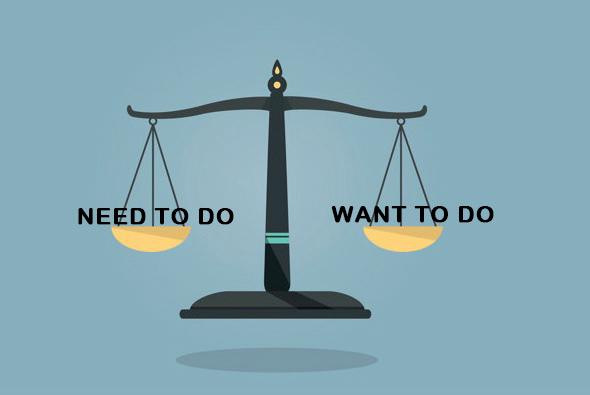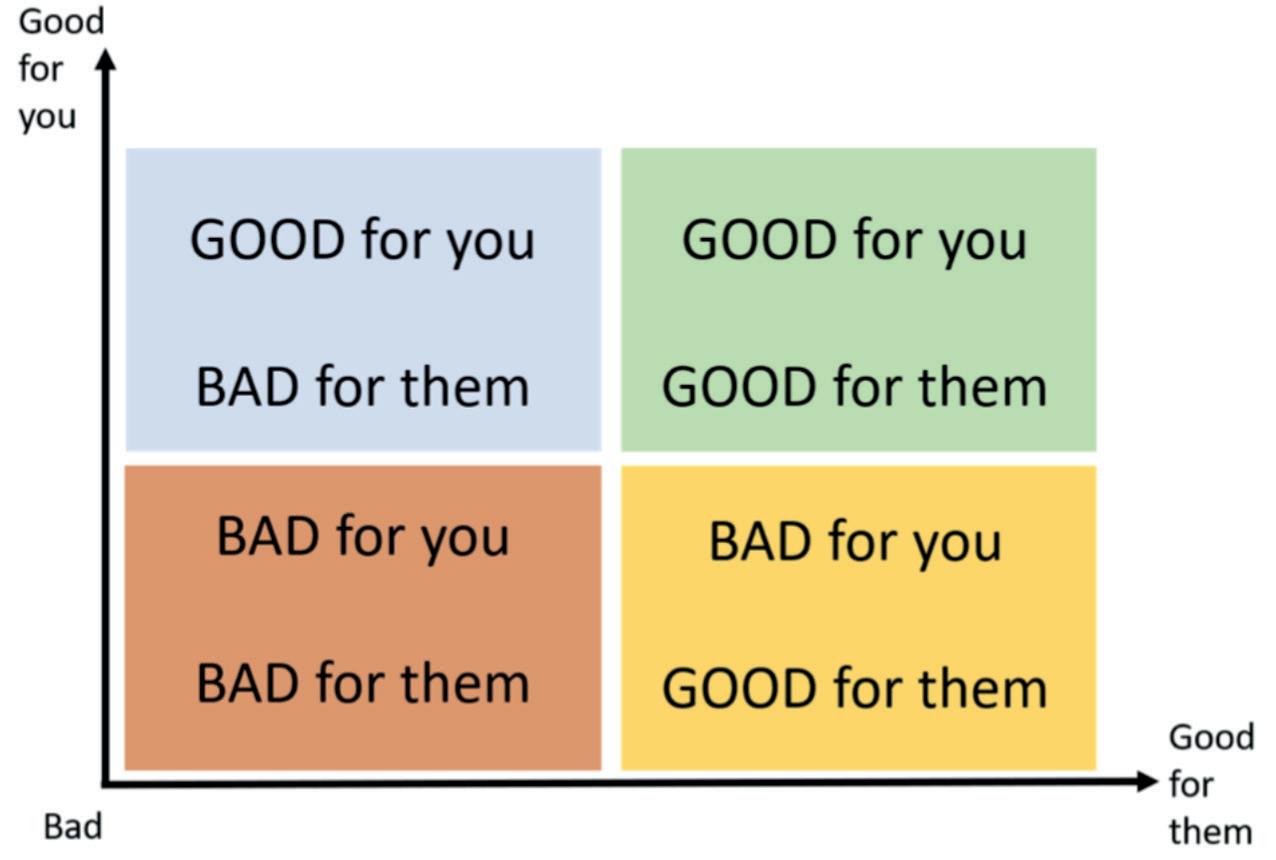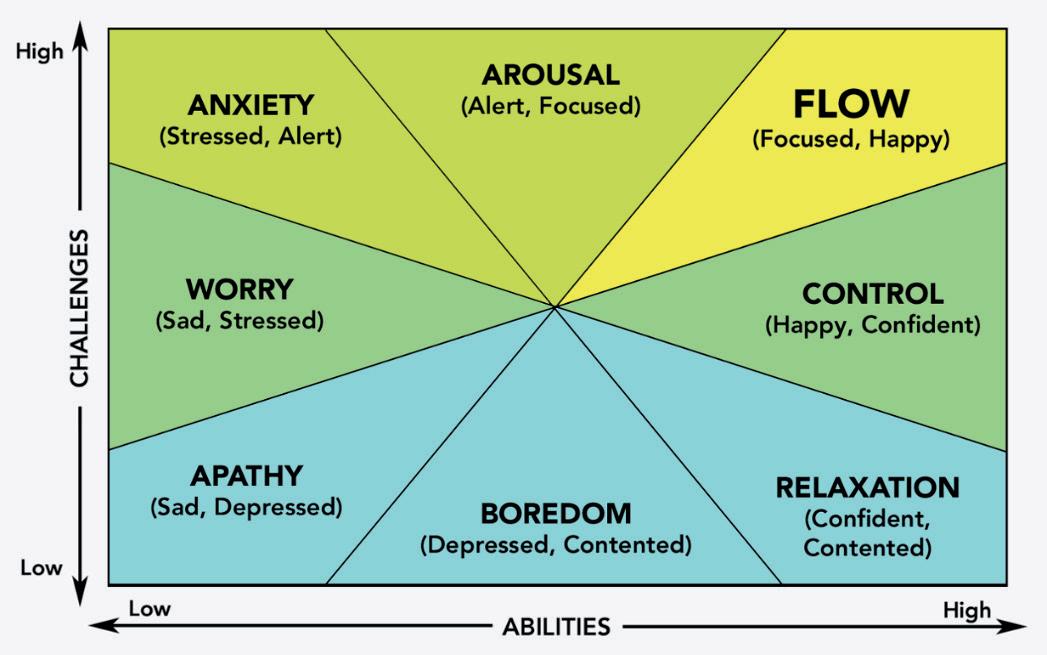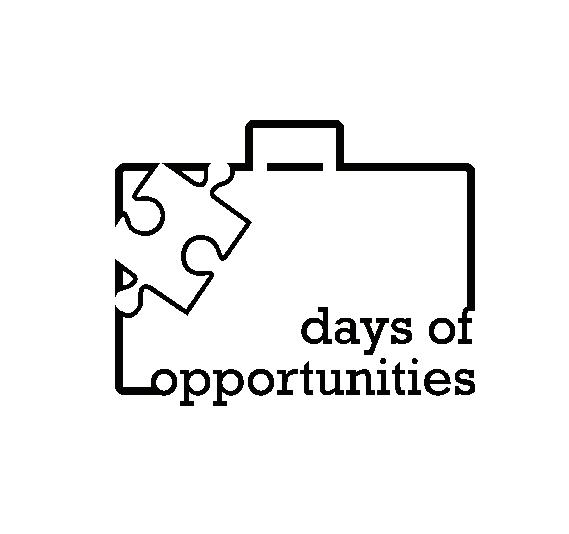
7 minute read
Healthy selfish
Why being selfish is (sometimes) good ...and why you should not be afraid of it by Veronika Morozova
Imagine you’re reading this article, but you have an important deadline tonight. Your team is expecting a lot of effort from your side, but all you want to do is sit there, mind your business, and read The Insider. The clock is ticking, you are not doing your job and letting down your teammates. Thoughts like “ah, they will manage everything on their own” and “I’ve already done a lot more than them (though you haven’t)” go through your mind. You barely notice how desperately your teammates are trying to contact you by sending multiple messages in a minute, but that doesn’t matter to you. And now, imagine the same situation, but with some adjustments. You’re reading the article, and also have a very important deadline coming up. You’ve been doing your best for a couple of weeks now, but there are still some crucial things to work on. Yet, you decide to spend some time reading The Insider just to relax your brain a little bit and to cool down from all the work. You are familiar with the fact that some 20-minute rest helps concentration. Thus, you take your time off and later get back to work. You probably think that the first situation is definitely not about you. But think carefully – are you sure you have never acted like that before? Look, I’m not here to judge you. It is that time of the year when all you need is emotional support and less stress, so I won’t be adding one. On the contrary, this article is about how to save yourself some time and nerves by acting selfishly. “WHAT?” Yes, exactly, you can be selfish, and you should be. But first, let me explain. Both situations described above are about a selfish person. However, there is a difference in behaviors. Clearly, the first person doesn’t care about others and acts in one’s best interest. The second person, though, knows that there is still a lot of work left to do, and does not abandon one’s teammates for long. While you have to avoid acting like in the first situation, there is no harm in the second one. This is called being healthy selfish. What it means is basically caring about yourself more than others, but in a good way. How is that, you would ask. Simple. A selfish person would sleep one hour longer and miss the seminar where the whole team should have been present. Whereas a healthy selfish person would catch up on his sleep some other time by not attending less important events. A selfish person wouldn’t help his friend because there is nothing in it for him. A healthy selfish person would, but first, he would check if what the friend is asking for is possible to fit in his schedule. Do you get the point? It is crucial to think about yourself first but also remember about people around you. You are not alone in this world, yet your priority tasks must be done, as well. There are several points to remember, especially for an SSE student, when you always need to decide upon what you should and want to do. 1 Avoid ‘bad’ selfishness. Mainly, if you want to do something good for you but bad for others (or, paraphrasing it into more understandable terms, low consumer surplus and high producer surplus), you should reconsider your decision. Maybe you can turn things around. Maybe you can wait for that person running to the elevator and then ride together. Maybe you shouldn’t blame your teammate for a mistake he made, but you didn’t notice. Maybe you should drink less on the next party not to leave your helpless self on behalf of your caring friends (Valentine’s day party is your chance to stop being unhealthy selfish!). 2 Self-care is important. Take those eight hours of sleep. Read that book you had no time for yesterday and a month ago. Go do sports. Entertain yourself! Care about yourself! Treat yourself! You can do everything if you’re happy, energized, and motivated. If you have no time for self-care, your body will stop producing dopamine (i.e., happy hormones), and it will be physically and mentally challenging to do only what you need to do. There is a difference between spending two hours and several days working on one task. The less you care about your well-being, the longer it would take to write that term paper. It is difficult – actually, close to impossible – to spend a week on a project with breaks only for food and sleep. That is NOT okay. Give yourself a treat – go for a walk, talk to your friends, catch up on the latest news (you know what, forget what I said, the news is mostly sad these days). Spend some time thinking or doing something else, and your body will thank you for that.
Advertisement
do only what you need to do. There is a difference between spending two hours and several days working on one task. The less you care about your well-being, the longer it would take to write that term paper. It is difficult – actually, close to impossible – to spend a week on a project with breaks only for food and sleep. That is NOT okay. Give yourself a treat – go for a walk, talk to your friends, catch up on the latest news (you know what, forget what I said, the news is mostly sad these days). Spend some time thinking or doing something else, and your body will thank you for that. 3 Healthy selfish and selfless is NOT the same term. The picture of the weighting scale suggests balancing what you want and need to do. Try to keep it like that; otherwise, you can go far into the selfish or even worse – selfless direction. If you think that it is okay to first do all the work someone asked you to do (not including homework and work duties) and only then to return to your tasks, remember one thing. It is not. Don’t take many responsibilities, start saying ‘no’ to people when you understand that you most probably will have to cancel your own (important) plans. Don’t feel bad for asking people to give the task to someone else, because often you are not the only one they can count on. 4 There are always (at least) four outcomes. Suppose your friend has asked you to meet his relative at the airport in an hour. Suppose you’re the only one he counts on in this case. However, you have a very important meeting at another end of Riga in two hours. What can you do? Agree and meet the relative; thus, be late for a meeting (bad for you, good for them) Say no and go to the meeting (good for you, bad for them) Agree, meet the relative and then rush to the meeting with him, become impatient that it takes so long to get there but still arrive precisely on time (bad for you, because you’re already exhausted, and uncomfortable for the relative) Agree, meet the relative, get him a taxi and send to the friend’s place, get yourself a cab and be on time for the meeting (good for you, good for them) Obviously, this is just an example. There could be many more outcomes, but the point is you have a choice, and you get to decide what to do. The best decision is to do what’s best for both sides, thus finding a balance between serving your own needs and serving the needs of others. 5 Reflect on your experiences. There is this video on YouTube where a girl doesn’t want to share food with her older brother. She even tells him off when he reaches for it. He tells her: “Okay, you need to share. Sharing is caring,” to which the girl replies: “But I don’t care.” And sure enough, who would judge a little girl for not sharing with her gummy bears? That’s right, nobody (except her brother who just got the worst roast of all time). It is okay for her to be greedy, but not really for people our age. And sorry, but greedy is also selfish. Eating your food in front of your hungry friends (I suppose they’re hungry because 1) we’re students and 2) we’re broke) makes them feel hungrier and more miserable. But I believe there are many other examples when you could have done something differently. Maybe you could have said a ‘yes’ instead of a ‘no’ to some proposals. Or vice













